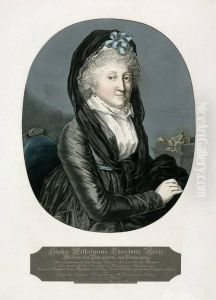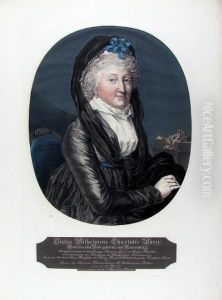Friedrich Wilhelm Gubitz Paintings
Friedrich Wilhelm Gubitz was a German artist, writer, and publisher, born on February 17, 1786, in Berlin. His multifaceted career spanned the realms of wood engraving, journalism, and literature, making him a notable figure in the German cultural landscape of the 19th century.
Gubitz began his career as a wood engraver and quickly gained a reputation for his skill in this medium. His engravings were characterized by their fine detail and clarity, which made them highly sought after by publishers of the time. He produced illustrations for books, magazines, and other publications, contributing to the popularization of the visual arts in printed media.
In addition to his work as an engraver, Gubitz was also a prolific writer and editor. He founded and edited several periodicals, including 'Der Gesellschafter' or 'Blätter für Geist und Herz,' which was a popular family magazine that combined literature, criticism, and current affairs. Through his editorial work, he played a significant role in shaping public opinion and taste.
Gubitz's contributions to literature were not limited to his editorial endeavors. He wrote plays, poems, and short stories that were well-received by his contemporaries. His literary works often reflected the social and political issues of his time, and he was known for his sharp wit and keen observations of society.
Despite his successful career, Gubitz faced financial difficulties in later life, partly due to the changing nature of the publishing industry and the advent of new technologies. Nevertheless, he remained active in the cultural scene until his death on December 5, 1870, in Berlin.
Throughout his life, Gubitz was a respected member of the artistic community, and his legacy continued to influence the world of print and literature in Germany. His work as an engraver is considered significant in the history of German graphic arts, and his contribution to journalism and literature has earned him a place in the annals of 19th-century German culture.

